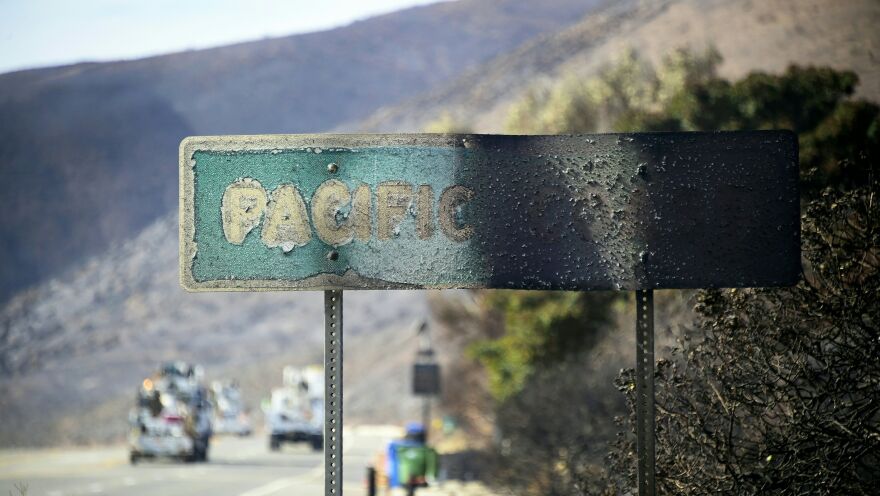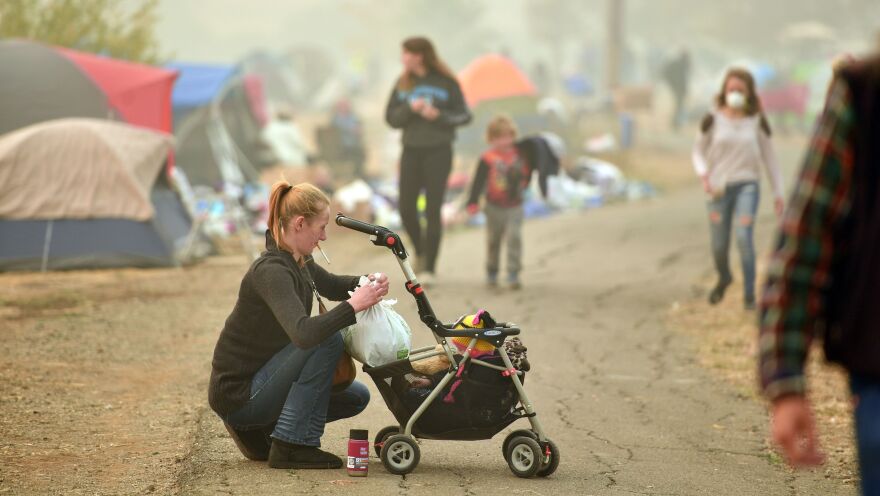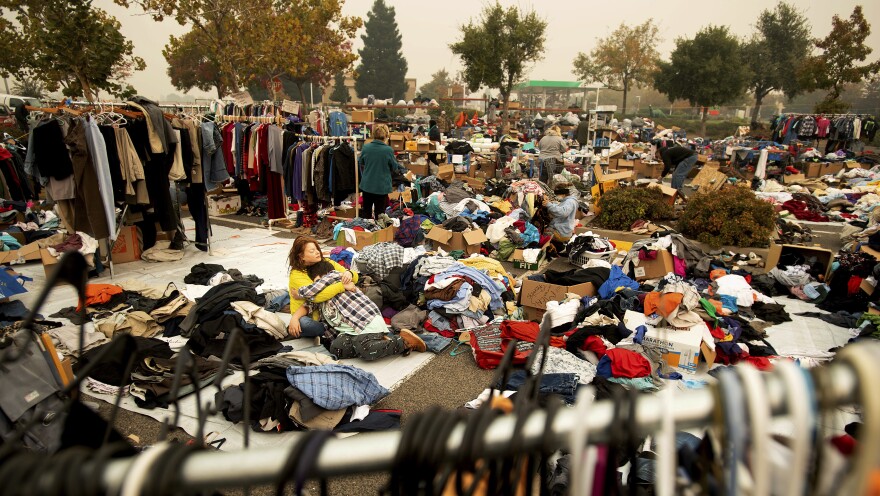When the sun rose over California on Friday, it found a state substantially changed from just a week ago. A pair of wildfires, both to the north and south, have killed dozens of people, left hundreds more missing and reduced the entire community of Paradise to smoldering ash and ruin.
Amid all the destruction, life goes on, albeit substantially changed.

For the survivors, rescuers and volunteers involved in recovery efforts — even for people living more than 200 miles from the nearest wildfire — Northern California's Camp Fire and Southern California's Woolsey Fire have knocked daily life off its axis.
Schools in more than half a dozen counties canceled classes Friday due to the Camp Fire, citing concerns that air quality was simply too poor to be safe for students. On the streets of the state capital, Sacramento, pedestrians donned masks to ease their breathing. And even in San Francisco, a three-hour drive from Paradise, the Golden Gate Bridge stood cloaked in a burnt-orange haze.
The region ravaged by the Woolsey Fire has fared better, at least in terms of human cost, but Malibu's handsome canyons have been left blackened and bare.

"There's no road map for this," Tami Collins, a Paradise evacuee, told NPR. Now in a hotel in Yuba City, about an hour from home, Collins managed to escape the Camp Fire together with her husband, son and parents, both in their 80s. But the house they left behind is "toast."
"What took a lifetime to accumulate and appreciate was incinerated in minutes," Collins said. "And we have nothing but a tiny, tiny pile of ash remaining."
With nearly 10,000 residences consumed by the Camp Fire, her story is far from rare. Some 52,000 people had to evacuate their homes because of the wildfire. Many of them are staying in makeshift shelters scattered across the region, and hundreds of them have settled in a tent city set up in a Walmart parking lot in nearby Chico.

They may not be able to stay there for long. Local media report that word has rippled through the camp that evacuees will need to leave the lot by Sunday.
"How can we continue to sustain this?" Luigi Balsamo, identified as one of the volunteer organizers coordinating resources at the Walmart, told Risa Johnson of the Chico Enterprise-Record. "We're going on six or seven days of being out here."
"Sitting out here and having no answers, and knowing that we have to leave this location, is scary and I'm concerned for the city of Chico," he added.
To make matters worse, more than 140 evacuees at four different shelters have come down with symptoms of norovirus, a nasty gastrointestinal bug, according to The Sacramento Bee.
The faces of evacuees... pic.twitter.com/ZFelrXyCCi
— Care Dorghalli (@CareDorghalli) November 16, 2018
"It's hard. It's hard to sit here every single day and not do for our families what we got to do every single day," Erika Etchison, a middle school math teacher in Paradise, told NPR's Tom Goldman.
Eight months' pregnant and raising a 2-year-old daughter with her husband, Etchison says her home burned down, too. After a narrow escape last week, she and her family are living in a temporary trailer.
"It's gut-wrenching and I really hate it," she said through tears. "I wish it was different."

Most schools in Paradise were destroyed. The Butte County Office of Education estimates some 5,000 students were displaced by the Camp Fire, which is 45 percent contained.
Hundreds of miles south, where the Woolsey Fire is now about 70 percent contained, Malibu officials have lifted their evacuation orders and just one local school in the L.A. Unified School District remains closed Friday.
But that doesn't mean all the evacuees will have homes to return to.
"I lost everything that I received from my mom, from my grandparents from the baby grand piano to china," one resident told the local CBS affiliate. "I lost my wedding album. I lost my children's baby albums."
NPR's Bridget De Chagas contributed to this report.
Copyright 2023 NPR. To see more, visit https://www.npr.org.




